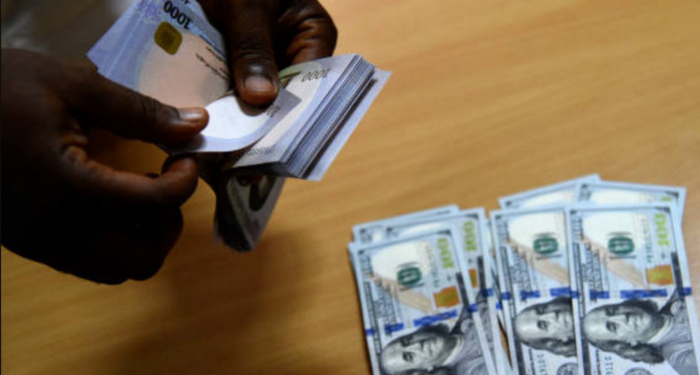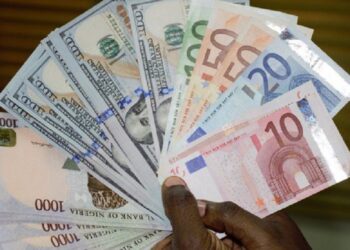The Nigerian Naira experienced a significant decline on Wednesday, January 3rd, 2024, closing at N1,035.12 per dollar in the official market.
This represents a notable depreciation of 4.72% compared to the previous closing, raising concerns about the currency’s trajectory just three days into the new year.
Third-time Naira crossed the N1,000/$ threshold:
This latest depreciation marks the third time the Naira has breached the N1,000/$ threshold, highlighting a persistent trend of weakness.
The first instance occurred on Friday, December 8th, 2023, when the currency reached a historical low of N1,099.05 per dollar. This was followed by a brief reprieve before a second depreciation on Thursday, December 28th, 2023, closing at N1,043.09 per dollar.
These developments represent a significant turning point for the Naira.
Despite recent efforts by the Central Bank of Nigeria (CBN) to bolster the foreign exchange market through interventions, the currency’s downward trend persists, prompting concerns about its potential impact on the broader economy.
This development is likely to aggravate existing inflationary pressures and further strain household budgets, particularly for those reliant on imported goods.
The implications for businesses, both large and small, are also significant, with potential increases in production costs and challenges in maintaining profitability.
The domestic currency depreciated by 4.72% to close at N1,035.12 to a dollar at the close of business, data from the NAFEM where forex is officially traded, showed.
- This represents an N46.66 loss or a 4.72% decline in the local currency compared to the N988.46 it closed on Tuesday.
- The intraday high recorded was N1224/$1, while the intraday low was N700/$1, representing a wide spread of N524/$1.
- According to data obtained from the official NAFEM window, forex turnover at the close of the trading was $85.68 million, representing a 457.08% increase compared to the previous day.
- However, the naira depreciated marginally at the parallel forex market where forex is sold unofficially, the exchange rate depreciated by 0.41%, quoted at N1220/$1, while peer-to-peer traders quoted around N1224.30/$1.
Forex crisis to limit the performance of manufacturers:
The Manufacturers Association of Nigeria (MAN) has said that the forex crisis and high inflation in the country will limit its performance in Nigeria till mid-2024.
The Association said this in its ‘Manufacturing Sector Outlook for 2024’, noting that average capacity utilization is expected to linger around the 50% mark due to forex-related challenges and the prevailing high inflation rate, with a potential uptick only anticipated in the third quarter as these challenges subside.
- It said: “Average capacity utilization will still hover around the 50% threshold as the forex-related challenges and high inflation rate limiting manufacturing performance may linger until mid-year.
- “The sector may experience a meager improvement in manufacturing output as forex and interest rates-related challenges are expected to subside from the third quarter.”
Call for government intervention:
The manufacturers also urged the federal government to take decisive action to address key issues affecting the manufacturing landscape.
Topping the list is a call for an overhaul of the power sector and prioritization of forex and credit allocation to manufacturers, essential steps to drive growth in Nigeria’s industrial sector.
The association stressed the need for the government to incentivize investment in renewables to enhance electricity generation and promote energy-cost efficiency.
Additionally, MAN recommended prioritizing forex and credit allocation to manufacturers while streamlining the number of Bureau De Change operators to curb excesses through effective management and supervision.























